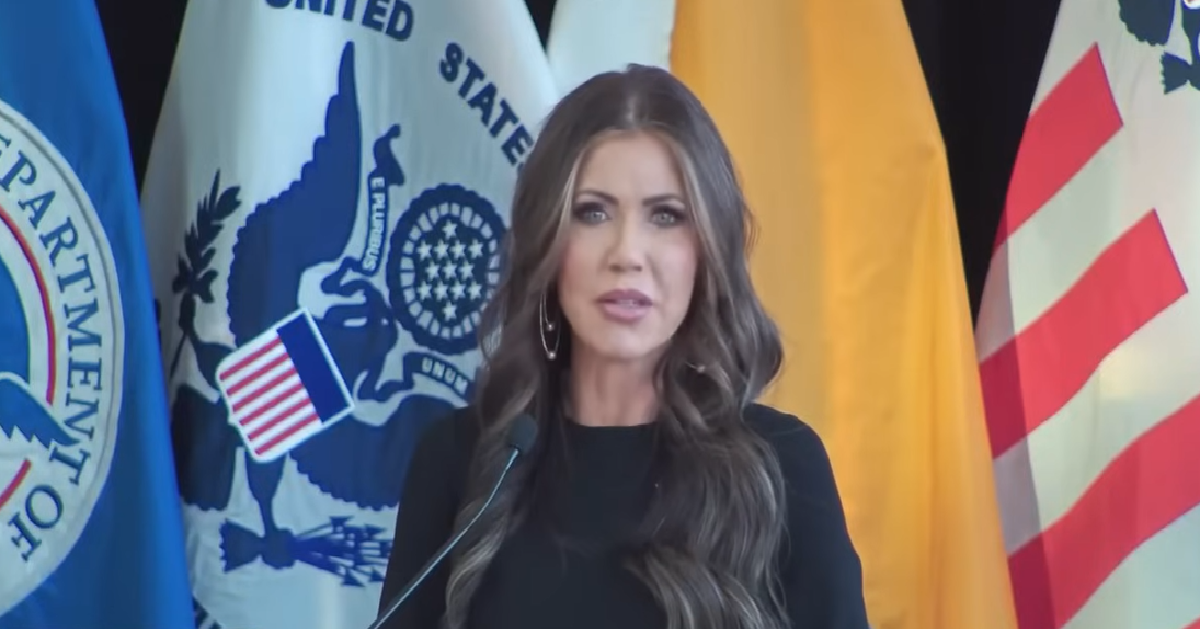RFK Jr. says US, Argentina joining forces to create 'alternative' system to WHO
On his first day in office, President Donald Trump issued an executive order to begin the process of removing the United States from the corrupt and inept World Health Organization.
On Tuesday, Health and Human Services Secretary Robert F. Kennedy Jr. announced that the U.S. and Argentina would collaborate on creating a new "alternative international health system" to counter the WHO, Breitbart reported.
The South American nation, under its populist-libertarian President Javier Milei, has also followed Trump's lead in withdrawing from the WHO.
RFK Jr. in Argentina
HHS Sec. Kennedy was in Argentina this week for meetings with President Milei, along with Health Minister Mario Lugones and Deregulation and State Transformation Minister Federico Sturzenegger, to discuss an assortment of health-related issues, including the joint withdrawal of both nations from the WHO.
Kennedy later memorialized the meetings with an X post that featured a few photos from the visit, including one of Kennedy posing with Milei's golden chainsaw used to symbolically slash through government regulations, as well as a signed yellow hat featuring the Gadsden flag's famous coiled snake and "Don't Tread on Me" slogan.
"I had a wonderful meeting with Argentine President @JMilei about our nations’ mutual withdrawal from the WHO and the creation of an alternative international health system based on gold-standard science and free from totalitarian impulses, corruption, and political control," the secretary wrote.
Reasons for WHO withdrawal emerge
HHS Sec. Kennedy also released a joint statement with Health Minister Lugones that said, "The WHO’s handling of the COVID-19 pandemic revealed serious structural and operational shortcomings that undermined global trust and highlighted the urgent need for independent, science-based leadership in global health."
"There are well-documented concerns regarding the early management of the pandemic and the risks associated with certain types of research," they continued. "Rather than ensuring timely transparency, the WHO failed to provide critical access to information, impairing countries' ability to act swiftly and effectively, with devastating global consequences."
"The absence of meaningful reforms, disproportionate financial demands, and the increasing politicization of the organization have ultimately led the United States and Argentina to withdraw from the WHO," the two officials asserted. "The organization has shifted away from its founding mission, becoming increasingly reliant on voluntary contributions and vulnerable to the influence of non-scientific agendas. This diversion has distracted from addressing genuine public health threats."
What comes next?
"Withdrawal marks the beginning of a new path -- toward building a modern global health cooperation model grounded in scientific integrity, transparency, sovereignty, and accountability," Sec. Kennedy and Minister Lugones said. "Our shared commitment is to cost-effective, evidence-based public health interventions that prioritize prevention, especially in children, by addressing root causes such as environmental toxins, nutritional deficiencies, and food safety standards."
"Real health threats demand urgency and gold-standard science. Under President Donald J. Trump, the United States is restoring a sovereign, results-driven approach -- putting people above politics," the statement noted. "Argentina, likewise, supports public health systems rooted in autonomy, transparency, innovation, and scientific rigor."
The leaders added, "We can no longer support a system that fails to protect our people or deliver on its mandate. The United States and Argentina invite all nations committed to scientific integrity, transparency, and the defense of human dignity to join us in shaping a new era of global health cooperation -- one focused on results, sovereignty, and a safer future for all."
Rationale for change continues to build
Meanwhile, as the U.S. and Argentina work on creating an alternative organization to the WHO, Breitbart also reported that the WHO's annual World Health Assembly adopted what is known as the "Pandemic Agreement," a legal document that empowers the global organization to impose its authority over the sovereignty of signatory nations in the event of a future worldwide health emergency.
That binding treaty, of which the U.S. and Argentina had no role in drafting and no intention of signing, is a huge example of why both nations have begun the process to withdraw from the WHO and establish an alternative system for global cooperation on health-related issues.






